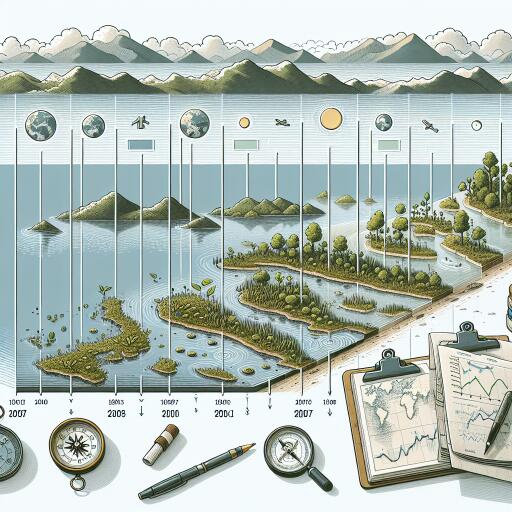
New Insights into Lake Evolution in Mid-Latitude Asia Uncovered
In a groundbreaking study from the College of Earth and Environmental Sciences at a prominent university, a team of researchers spearheaded by Professor Li Guoqiang has shed light on the driving forces behind the changes in lake systems across mid-latitude Asia. This work provides crucial insights that could aid in forecasting and managing fluctuations in lake water levels in the future, marking a significant advancement in our understanding of these ecosystems.
The focus of the investigation was the Ebinur Lake located in the Xinjiang Uygur Autonomous Region in northwest China. This lake, nestled in the arid reaches of the Junggar Basin and fed by rivers from the glaciated Tianshan Mountains, serves as an ideal case study for examining the evolution of lake environments amidst the shifting climate of mid-latitude Asia.
The study employed cutting-edge single-grain K-feldspar dating techniques to construct a timeline of the lake’s evolution spanning the last 18,000 years. This novel approach revealed that a complex interplay between glacier meltwater contributions and the variable influence of Westerlies and East Asian summer monsoon precipitations has led to a diverse range of lake evolution patterns throughout mid-latitude Asia.
While natural climatic shifts are a primary factor in altering lake water levels, the research team also highlighted the significant impact of human activities on these delicate ecosystems. The dual influence of nature and human action underscores the need for comprehensive strategies to mitigate potential threats to lake systems in arid regions.
The findings, published in the journal GSA Bulletin, open new avenues for predictive models and conservation efforts aimed at preserving the ecological balance of desert-lake ecosystems in mid-latitude Asia. This study not only contributes to our scientific understanding of hydrological changes over time but also emphasizes the importance of integrated approaches in addressing the challenges posed by environmental changes.
This pioneering research underscores the significance of multidisciplinary approaches in unraveling the complexities of earth and environmental sciences. As we continue to face the looming challenges of climate change, studies like these are invaluable for informing policy and guiding effective environmental management practices. The insights gained from exploring the past and present dynamics of lake evolution offer a guiding light for safeguarding the future of our planet’s precious water resources.





Leave a Reply